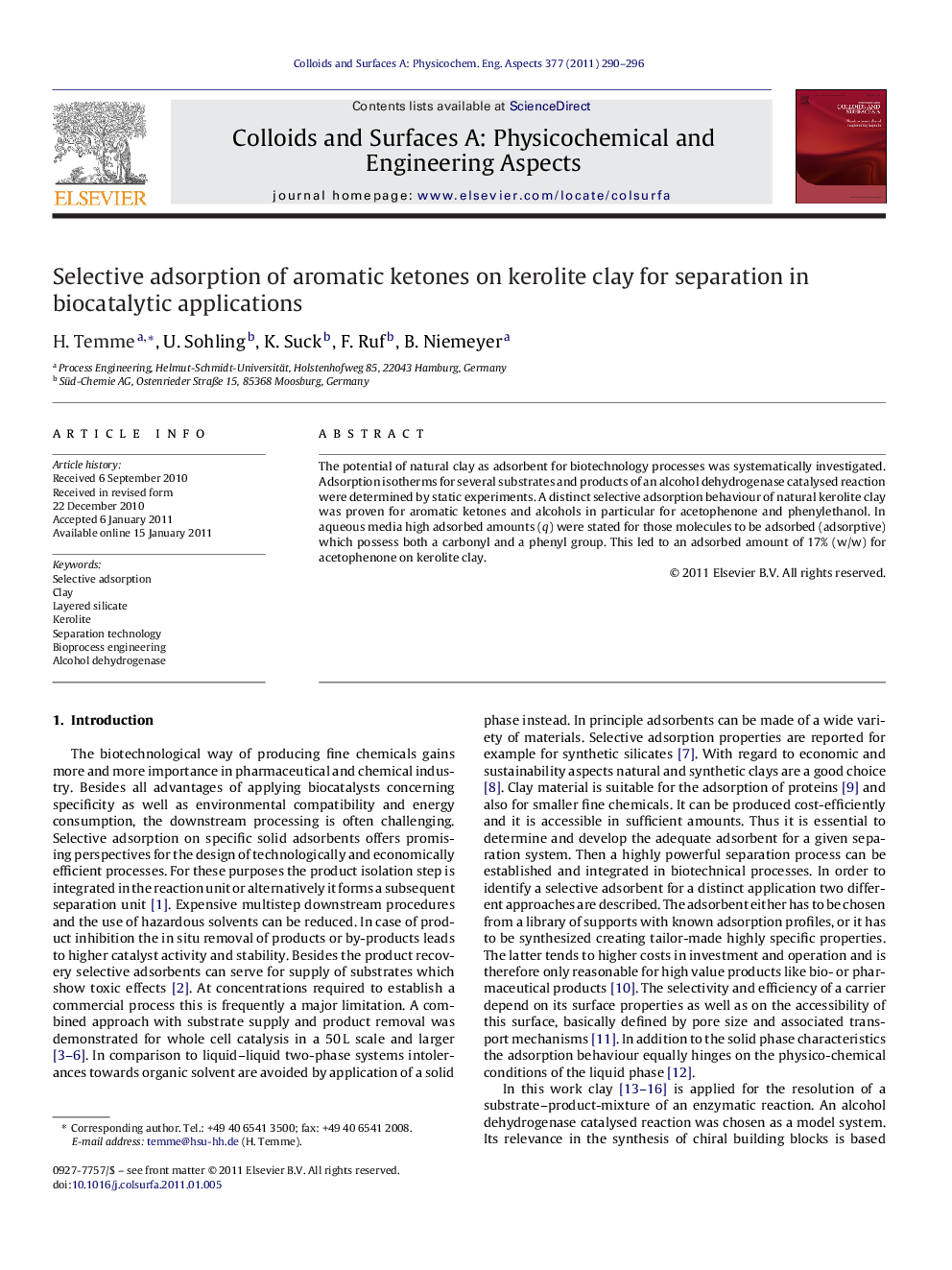| Article ID | Journal | Published Year | Pages | File Type |
|---|---|---|---|---|
| 594970 | Colloids and Surfaces A: Physicochemical and Engineering Aspects | 2011 | 7 Pages |
The potential of natural clay as adsorbent for biotechnology processes was systematically investigated. Adsorption isotherms for several substrates and products of an alcohol dehydrogenase catalysed reaction were determined by static experiments. A distinct selective adsorption behaviour of natural kerolite clay was proven for aromatic ketones and alcohols in particular for acetophenone and phenylethanol. In aqueous media high adsorbed amounts (q) were stated for those molecules to be adsorbed (adsorptive) which possess both a carbonyl and a phenyl group. This led to an adsorbed amount of 17% (w/w) for acetophenone on kerolite clay.
Graphical abstractFigure optionsDownload full-size imageDownload as PowerPoint slideResearch highlights► Natural kerolite clay: suitable adsorbent for separation in biotechnological processes. ► High selectivity: separation of phenylic alcohols and ketones in aqueous solution. ► Both a carbonyl group and a phenyl group are crucial for enhanced adsorption. ► Adsorbed amount of acetophenone achieves 17% (w/w).
